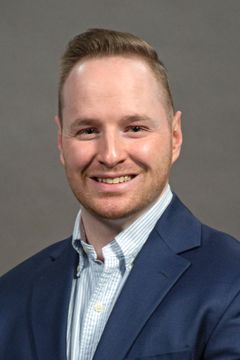Background
Hunter received his BA in Neuroscience with a minor in Psychology from The University of Tennessee – Knoxville in May 2017. Witnessing the toll of neurodegeneration as an emergency department medical scribe prompted him to pursue neurodegenerative research.
In May 2019, Hunter joined Boston University’s Chronic Traumatic Encephalopathy (CTE) Center as a Research Assistant and Tissue Request Coordinator, where he contributed to biospecimen management and harvested specimens for internal and external collaborations. From 2020-2022, Hunter pursued a Master of Science in Medical Sciences (MAMS) at Boston University Chobanian & Avedisian School of Medicine. During this program, he conducted his master’s thesis at the Harvey Cushing Neuro-Oncology Laboratory (HCNL) under Dr. Ennio Antonio Chiocca, Neurosurgeon-in-Chief and Chairman of the Department of Neurosurgery at Brigham and Women’s Hospital and Harvard Medical School.
Hunter’s research focused on harnessing the immune system to overcome resistance in recurrent glioblastoma (GBM), investigating the synergistic potential of TIGIT immune checkpoint blockade with CAN-3110 oncolytic virotherapy. His work demonstrated a significant improvement in survival rates in preclinical mouse models. Hunter has presented his thesis findings at the Society for Immunotherapy of Cancer (2022) and further advanced this work by studying IDH1-mutated gliomas, leading to a second-author oral presentation at Harvard Surgery Research Day (2023).
Hunter has since returned full-time as a Health Science Specialist at the VA PTSD Brain Bank, where he oversees tissue harvests, trains staff and supports translational research on PTSD and related brain disorders. Concurrently, he serves as a per-diem Laboratory Technician II, providing on-call assistance for brain processing and leading a clarity project for the ADRC and CTE Center under Dr. Alosco.
Research Interests
Hunter’s research interests lie at the intersection of traumatic brain injury, neurodegeneration, and neuro-oncology. As part of his clarity project, he is investigating white matter hyperintensities (WMHs) observed on FLAIR MRIs in individuals with a history of repetitive head impacts (RHI), chronic traumatic encephalopathy (CTE), and Alzheimer’s disease (AD). He employs Imaris machine learning to elucidate the underlying morphological changes in these disease types. He is also exploring how head trauma, in the context of CTE, may contribute to GBM pathogenesis.
As an aspiring research scientist, he aims to drive innovation and discovery to improve patient outcomes across complex brain disorders and diseases.
- Fields
- VA-BU-CLF Brain Bank
